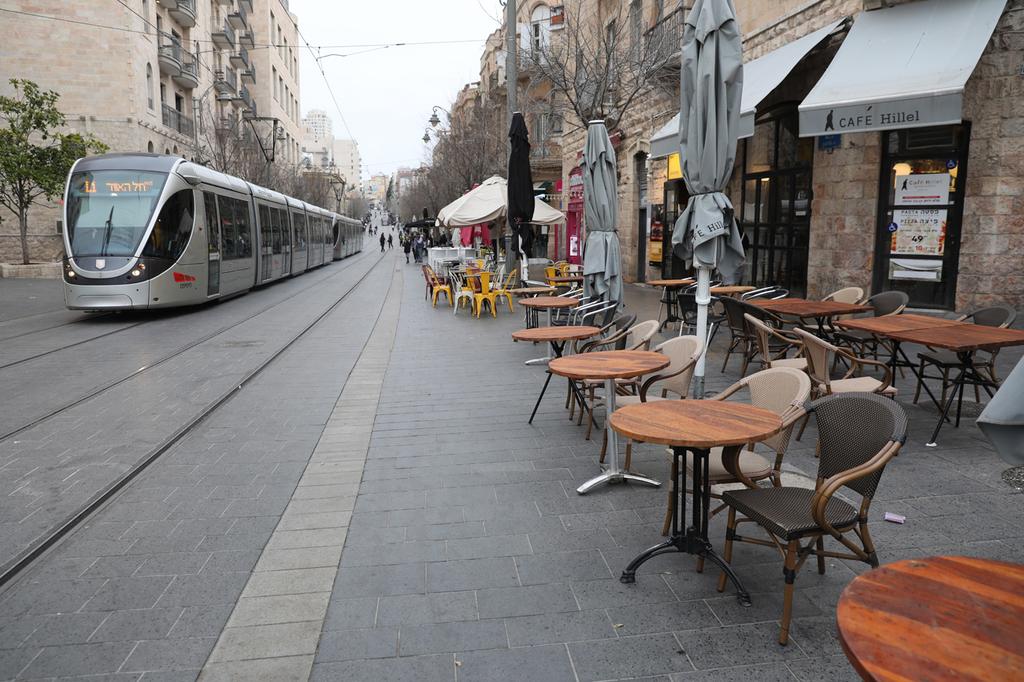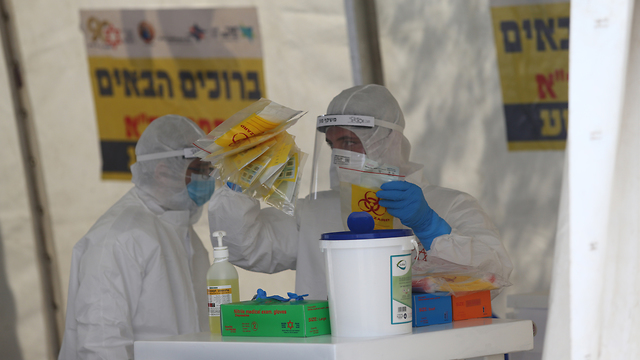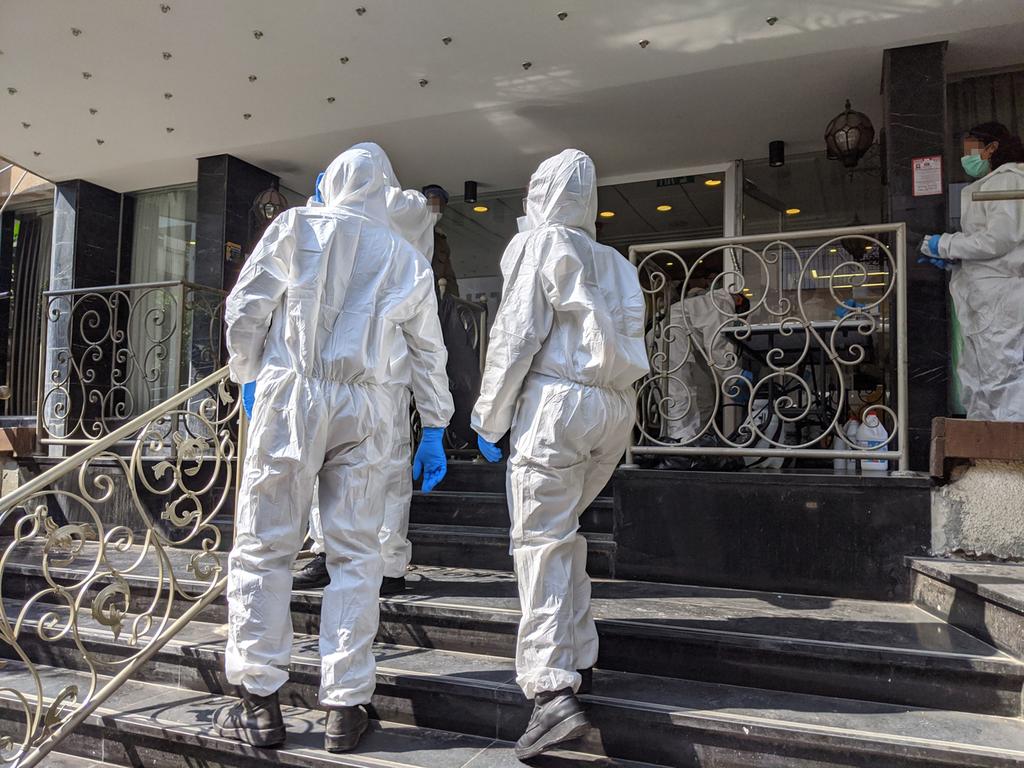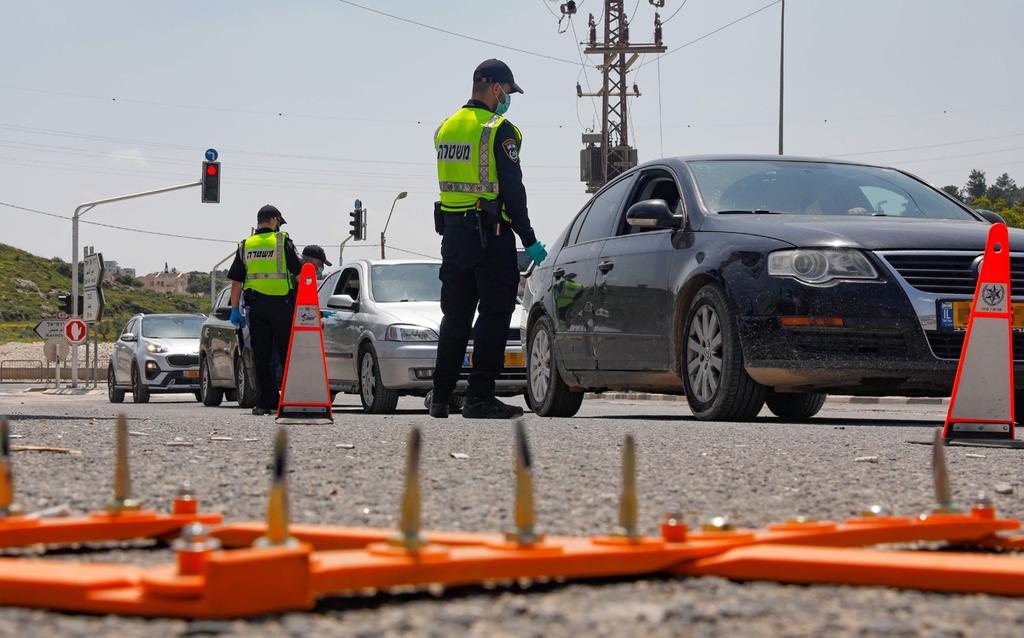The State of Israel, like the rest of the world, has been entirely focused in recent months on dealing with an unprecedented threat that mercilessly battered even the mightiest superpowers.
It seems like we have successfully passed the first phase of the pandemic, also called the "hammer" in professional jargon, where the goal is to rein in an exponential spread of the disease.
4 View gallery


Shuttered businesses in downtown Jerusalem during the coronavirus outbreak
(Photo: EPA)
Israel's decisive action throughout the outbreak led to a dramatic decrease in the number of new cases and prevented the high mortality rates sadly experienced in countries similar to ours. But the consequences for the economy and public health are severe and we will only see their full scope in the future.
The heavy price we paid allows us to begin the second phase with relative confidence - continuing to curb the spread of the virus with "surgical" and more accurate tools.
This process, which will see many highs and lows, is also known as the "dance" due to the dynamic adjustments required in social distancing policies.
This all serves one goal: returning to normal, everyday life as much as possible, without causing an uncontrollable outbreak that will force us to go into lockdown again.
Israel must take these three actions to prevent another outbreak under strict social distancing and hygiene regulations: conducting epidemiological reports and isolating patients; dealing with coronavirus hot spots; and protecting at-risk populations.
Firstly, the investigative and isolation efforts must be a quick and efficient process that should include testing, conducting epidemiological investigations, detecting people who came in contact with confirmed patients and isolating them within 24-48 hours from the onset of symptoms.
4 View gallery


Health workers at a drive-through coronavirus testing station in Jerusalem
(Photo: Alex Kolomoisky)
We can consider this as hundreds of small-scale "closures" around each new patient. This is a very complex logistical system that requires precision and control at the testing stage while conducting investigations, and in explaining and enforcing isolation on new patients and their contacts.
Secondly, Israel must place a premium on handling coronavirus hot spots and aid those communities struggling to deal with the disease by introducing increased social distancing regulations, such as short local lockdowns, to stop the virus from further leaking into neighboring areas.
Thirdly, we must protect three populations at a high risk of coronavirus. The first and most important group, the elderly in nursing homes, is already being taken care of under the nationwide Magen Avot program.
The second group - senior citizens who live in their own homes – is still being left to its own devices, and only horror stories of elderly people found dead in their homes serves as a bleak reminder that we must conceive a well-organized national plan to allow them to live with respect in relative isolation.
Moreover, we must not forget other younger patients suffering from underlying health conditions that put them at a greater risk of severe illness.
Clalit Research Institute, a branch of the health maintenance organization of the same name, developed a simple model that tells a person whether they are part of a group at higher risk.
4 View gallery


Home Front Command soldiers in hazmat suits disinfecting a Bnei Brak nursing home where several cases of coronavirus were detected
(Photo: Ido Raz)
Now the state has to find an economic solution that will allow these people to stay at home until contagion rates outside virus hot spots drop significantly.
These alternative tools are crucial. Without them, the disease will return and spread, and the colossal price we paid in recent months may all be for nothing.
These systems are immeasurably more important at this time than the public debate on which businesses will reopen, when and under what conditions.
We must set clear rules of conduct in public spaces while weighing the epidemiological risk and regardless of the type of business, and then open all businesses that can comply with them and close those who don't comply or are unable to do so.
This will include preventing gatherings, keeping distance between customers, preventing direct contact between customers and staff, and so on.
We must provide businesses with a schedule for opening and returning to normal, in accordance with the same principles and level of risk. This way, we can properly balance between public needs and public health, and most people will be able to keep their jobs and earn a living.
4 View gallery


A police checkpoint in the virus-battered town of Deir al-Asad in northern Israel during lockdown
(Photo: AFP)
But all this is beside the point. Our main focus should be building an epidemiological alternative for closures. Every day that these three systems listed above are not established - with transparent metrics for success available to the public - is another day that brings us closer to the starting point and to another outbreak.
This should not happen, and the determination and cooperation of all government offices are now required to achieve this goal.
The economy must be rekindled, but we must also consider the risks involved at the same time.
We don't have a single day to lose.
Ran Balicer is the founding director of the Clalit Research Institute and Director of Health Policy Planning at Clalit

